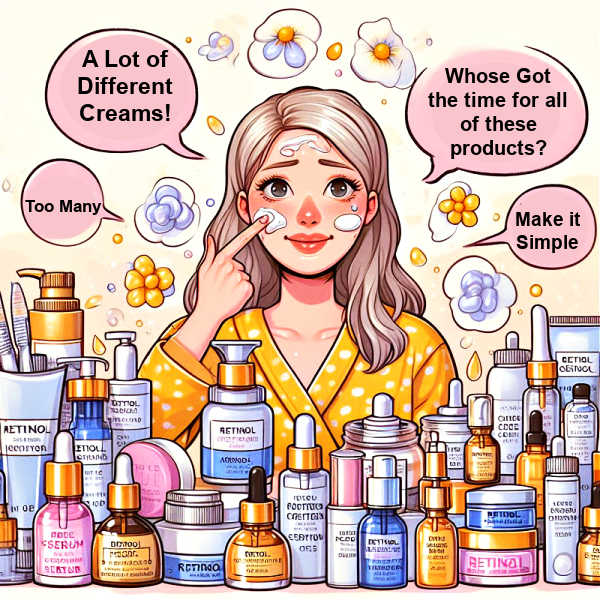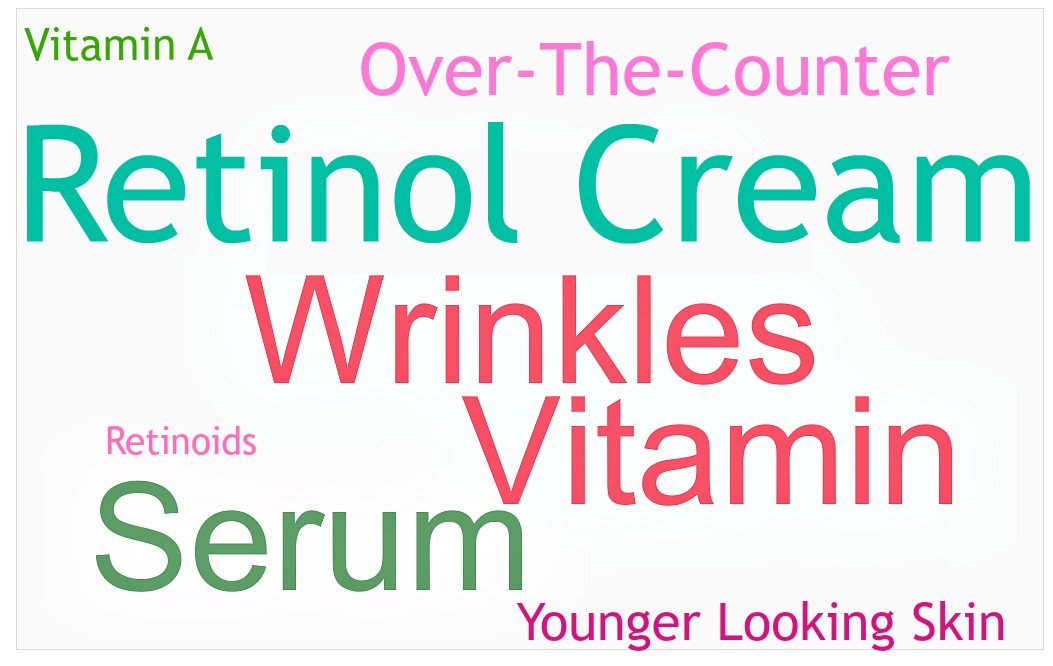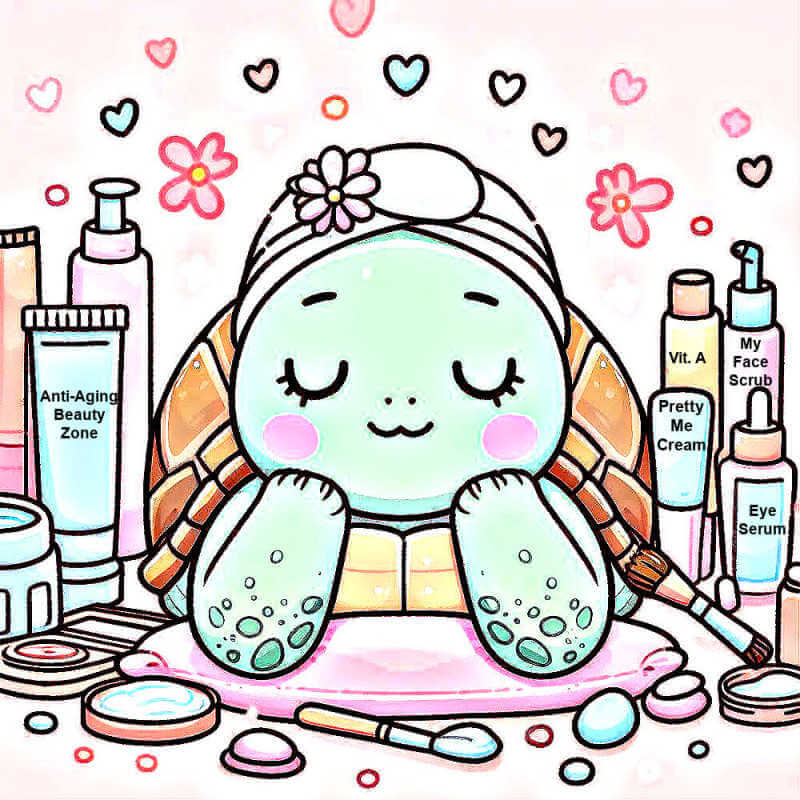- Home
- Retinol Skin Products
- Retinol Serum
I may earn from qualified Amazon & Affiliate purchases at no cost to you.
Retinol Serum vs Cream
by: Linda Robison / Facial Fitness Specialist @ ABZ
When it comes to retinol serum vs cream, the serum formulation has made my beauty routine so much easier!
How many different face creams do you currently have? Too many right?
Each cream is designed for a specific purpose, but after a while, it's just too much!

I can't layer 3-4 different creams on my face every day, whose got the time? Plus, it makes my face feel greasy!
Retinol serums are lighter, more concentrated, and absorb better into the skin compared to creams.
And now many retinol serums have potent "booster" with ingredients like vitamin C, B5, hyaluronic acid and retinols. All I have to do is add a few drops into my favorite moisturizer or makeup foundation, and my beauty routine just got a lot simpler.
Read on to see what retinol serum I use...
Understanding retinol serum benefits:
First things first, let's demystify retinol.
Simply put, retinol is a derivative of vitamin A that works wonders for your skin. It stimulates collagen production, fades dark spots, and smoothens fine lines, giving your face a beautiful glow.
When applied to clean dry skin, it penetrates deep into the dermis, speeding up cell turnover, which helps uncover that new, healthier skin underneath.
Retinol serum formulas offer some advantages over creams because they're lighter, more concentrated, and absorb better due to their liquid texture and smaller molecular size.
Bonus: This allows the active ingredient to penetrate more effectively compared to thicker creams.
Who should use a serum?

Who should consider a serum over a cream, and why?
Of course, all retinols (cream or serum) will help fine lines and wrinkles.
But, if you're dealing with acne, breakouts, pimples, or congested skin, serums are lighter and have a less chance of clogging up your pores. Also, if your skin looks kinda blotchy and uneven, retinol serums can really help with all of that too.
They can tackle lots of different skin issues, which is why so many people swear by them as a must-have product.
But the best part about serums is that even though they come in those tiny bottles, a little goes a long way because the retinol is really concentrated. Just a few drops pack a powerful anti-aging and skin-clearing punch.
And, if your skin is feeling a bit dry, you can add the serum to your existing favorite moisturizer.
It's like getting maximum retinol strength without having to slather on a thick, greasy cream every night or purchasing several products.
Benefits for beginners
Ease of Use:
Starting a retinol serum can sometimes irritate your skin at first. But you can avoid that by buffering it at the beginning. Just mix a few drops of the retinol serum into your go-to facial moisturizer before applying.
This eliminates or slows the possibility of retinol side effects because you only add as much as your skin can handle and slowly add more as your skin adjusts.
Once your skin builds up tolerance after a few weeks, you can apply the serum directly without mixing.
Buffering allows you to start reaping retinol's anti-aging benefits from day one, minus any harsh dryness or peeling. Smooth move!
And, serums are usually cheaper, because you're not paying for all the "extra stuff" that's added to a typical retinol face cream.
Retinol side-effects - my story...
I was afraid of using any type of retinol skin care product. Whether it was an over-the-counter retinol or prescription retinol because I read it might make the skin more sensitive to sunlight.
So could I possibly do more harm than good!
I'm an outdoors type of girl, but I'm not very diligent about wearing sunscreen. So I thought retinol products would not be a good fit for me.
Even though I read about the benefits of retinol based serums and creams for younger skin... I was afraid to use them.
Glad I Took The Plunge
But I took the plunge and am so glad I did.
I found some over-the-counter retinols that are pretty effective for anti-wrinkle, anti-sagging properties! And, for the most part, they’re not very expensive. The problem is after a period of time, skin begins to adjust to the retinol and results seem to plateau.
Eventually a stronger concentration of retinol is needed for continued improvement.
Since I’m not a fan of prescription retinoid creams because I could never seem to get past the side effects – I thought I’d do some research to see what other options are available.
I learned that layering retinol (vitamin A derived) serums under your favorite cream formulation can help kick-start results.
How to use retinol serum
Make sure to follow the directions on the product you purchased. But some basic instruction tips are:
- Apply to clean and DRY face avoiding the eyes and lips.**
- Then follow-up with a moisturizer. I use the ZENMED's moisture-boosting Omegaceramide+ Recovery Moisturizer. This is helpful if your skin tends to be more dry. But you can use any moisturizer you have on hand.
** Note: Some suggest applying retinol onto moist skin for increased absorption. However, according to Dr. Anil Rajani, a cosmetic physician and expert in the field of aesthetic medicine, an overly concentrated application could lead to skin irritation or inflammation. If you want to increase the potency gradually, it's safer to up the frequency instead of the amount each time. That way, you minimize the risk of adverse side effects.
Personally, I simply put a dollop of moisturizer in the palm of my hand and then add a few drops of the serum directly to my moisturizer and apply it that way.
During the summer months, I skip the moisturizer and apply the retinol serum alone - at night - because it didn't feel greasy. Plus, I'm out in the sun during the day, so I'd rather use retinols at night.
Speaking of sun - while using any type of retinol always use a sunscreen with a high PA+++ rating when heading outdoors.
Results with retinol serums
In about five weeks, I began to see even more improvements in my skin tone. It seemed brighter and smoother than before I began using the serum.
Which really surprised me because I haven't been using the retinol serum for too long.
Are retinol skin repair serums right for you
The best retinol product for you really depends on your skin type and your needs. I hate applying a ton of creams, so all anti-aging skin care serums are a perfect match for me.
Plus, you can control or buffer the strength of the retinol with a serum. Something you can't do with creams.
Retinol usage guide/suggestion
Everyone is different!
There really is no one standard suggestion or better way to use retinols. You have to find the “sweet spot” for your skin type.
Just start slowly at first and apply it every 2nd or 3d day. So you're only using it maybe a few times a week and monitor your progress.
If all goes well, you can increase the frequency after a month. If at anytime you feel a wind burn or look like you have a wind burn, with dryness or redness, back down for a week or two. Then slowly increase up again.
The beauty of serums is that they can be mixed or layered under favorite creams or moisturizers without leaving your face feeling heavy or greasy.
Important Note: Just make sure not to mix retinol with Benzoyl peroxide (used for acne) and alpha hydroxy acids because they might cause irritation, inflammation and/or reduce the effectiveness of retinoids,
About the Author:
Linda Robison is a Facial Fitness Specialist and the founder of Anti-Aging Beauty Zone. She shares expert insights on skincare, facial rejuvenation, and beauty treatments—blending traditional wisdom, personal experience, and science-backed research for both at-home and in-office solutions.
Before you go ....
Please tap on the💙in the bottom right corner if you found this page helpful. Also, Let’s CONNECT! Click the buttons below to follow me on social media.
Thanks so much!

